SEBS FILAFLEX – Black – 1.75MM 600gr. RECREUS
Description
Filaflex SEBS TPE Filament from Recreus is a rubber-based 3D printing filament that combines the flexibility and durability of Filaflex with other properties such as insulation, water resistance, and chemical and thermal resistance. In addition, the filament provides a superb final finish to the part.
Filaflex SEBS is a high performance TPE (thermoplastic elastomer) filament designed for the most demanding applications. With a Shore hardness of 90A, this rubber-based filament combines exceptional flexibility with outstanding durability, offering superior resistance to impact, fatigue and environmental factors. What sets it apart is its universal compatibility with all types of 3D printers, including Bowden systems, making professional flexible printing accessible to everyone.
With outstanding chemical and UV resistance, Filaflex SEBS excels in outdoor applications exposed to harsh conditions. Its hydrophobic nature ensures reliable performance in wet environments while providing excellent detail and a premium soft touch. The material’s unique properties make it an ideal alternative to PVC, offering easy pad removal and excellent printability for applications requiring long-lasting durability and flexibility.
Main features
- Universal compatibility: works with all printers, including Bowden systems
- Environmental resistance: UV resistant, waterproof and chemical resistant
- Professional quality: 90A Shore hardness with high durability
- Premium finish: Excellent detail and soft-touch surface
- Technical properties: autoclavable and electrically insulating
Professional applications
- Industrial Solutions: seals, couplings and anti-vibration components
- Sports equipment: diving accessories and ski equipment
- Automotive parts: waterproof seals and interior components
- Custom Products: Shoe Components & Durable Toys
- Technical parts: protective covers and anti-slip systems
Full Technical Printing Manual – Filaflex SEBS
🔍 1. Material properties
SEBS (styrene-ethylene-butylene-styrene) is a thermoplastic elastomer that combines the properties of plastic and rubber. As a hydrogenated version of SBS, it offers improved thermal stability and environmental resistance. The material provides excellent layer adhesion and consistent extrusion properties.
⚡ 2. Understanding print speed
Volumetric versus linear velocity
- 🌊 Volumetric speed (mm³/s): Like water through a hose – measures how much plastic flows per second, regardless of nozzle size.
- 📏 Linear speed (mm/s): as the walking speed – how fast the print head moves on the print area
- 🔑 Key formula: Linear velocity = Volumetric velocity / (Line width × Layer height)
✨ Magic: When you set a volumetric speed limit in the slicer, it automatically calculates and adjusts all linear speeds (perimeters, fill, etc.) based on the current nozzle size and layer height. This ensures consistent material flow regardless of print settings!
Basic parameters
| Nozzle | Layer height | Line width | Volumetric speed | Temperature |
|---|---|---|---|---|
| 0.4mm | 0.2mm | 0.4mm | 5.0 mm³/s | 245°C |
| 0.6mm | 0.3mm | 0.6mm | 11.2 mm³/s | 245°C |
| 0.8mm | 0.4mm | 0.8mm | 20.0 mm³/s | 245°C |
| 1.0mm | 0.5mm | 1.0mm | 31.2 mm³/s | 245°C |
🚀 4. Speed settings
⚠️ NOTE: SEBS takes advantage of constant speeds to maintain uniform extrusion and prevent filament formation. The following speeds are calculated based on the volumetric speeds listed above.
0.4 mm nozzle (volumetric speed: 5.0 mm³/s)
| Line type | Percentages | Speed |
|---|---|---|
| Outer Perimeter: | 50% | 31.25 mm/s |
| Internal perimeters: | 75% | 46.88 mm/s |
| Density: | 100% | 62.50 mm/s |
| Upper/Lower: | 60% | 37.50 mm/s |
| First layer: | 30% | 18.75 mm/s |
️ 5. Withdrawal settings
🚀 IMPORTANT: SEBS requires precise withdrawal settings to prevent filament formation while maintaining a constant flow.
| Nozzle | Distance | Speed | Z-Hop |
|---|---|---|---|
| 0.4mm | 0.8-1.2mm | 30mm/s | 0.2mm |
| 0.6mm | 0.8-1.2mm | 30mm/s | 0.2mm |
| 0.8mm | 0.8-1.2mm | 30mm/s | 0.2mm |
| 1.0mm | 0.8-1.2mm | 30mm/s | 0.2mm |
Additional recommendations for withdrawal:
- Minimum withdrawal: 1.5 mm
- Maximum number of withdrawals: 100
- Minimum ejection between withdrawals: 1 mm
- Withdrawal on layer change: yes
- Wiping before withdrawal: yes
🌡️ 6. Platform temperature
Temperature settings:
- Platform temperature: 70-80 °C
- Chamber temperature (if available): room temperature without drafts
Temperature control tips:
- Keep the printer in a draft-free environment
- Use a lid, if available, to maintain a stable temperature
- Observe the first few layers carefully for proper adhesion
- Adjust fan speed according to workpiece geometry and size
❄️ 7. Cooling configuration
- Total: 20% (layer time >10s)
- Layers < 9 seconds: 40% fan
- First layer: always 0%
- Forced fan speed for overhanging parts and bridges: OFF
Advanced cooling settings:
- Minimum layer time: 10 seconds
- Maximum layer time: 30 seconds
- Too fast head lift on the layer: yes
- Bridge fan speed: 40
8. Troubleshooting guide
| Problems | Solution |
|---|---|
| Poor adhesion to the bed | 1. Clean the printing platform well 2. Check platform temperature (70-80 °C) 3. Increase the width of the first layer (110%) 4. Reduce the speed of the first layer |
| Distortion | 1. If possible, use an enclosure 2. Remove all drafts 3. Make sure fan is off for first layers 4. Add an edge or countertop |
| Insufficient extrusion | 1. Increase the print temperature by 5 °C 2. Check for partial nozzle blockage 3. Reduce print speed 4. Increase flow rate by 2-3% |
| Stringing | 1. Fine-tune the download settings 2. Optimize movements 3. Enable z-hop for movements 4. Reduce print temperature by 2-3°C |
✨ 9. Best practices
-
- Direct drive extruder recommended
- Suitable standard brass nozzle
- A closed chamber is recommended
- A clean building surface is required
-
- Even platform level at printing temperature
- Start with small test prints
- Use edging for better bonding of larger parts
-
- Print the first layer slower for better adhesion
- Use edging for larger parts
- Activate Z-hop to move
- Watch carefully the adhesion of the first layer
-
- Allow the parts to cool completely before removing them
- By
- Handle printed parts with care to preserve their flexibility
🛠️ Hardware requirements
⚙️ Print Setup
🎯 Quality optimization
🔬 Post-processing
⚠️ IMPORTANT: These settings are optimized for direct drive extruders. These parameters are initial recommendations and may need to be adjusted depending on your specific configuration and conditions. The properties of the SEBS make it particularly suited for parts that require both flexibility and durability.


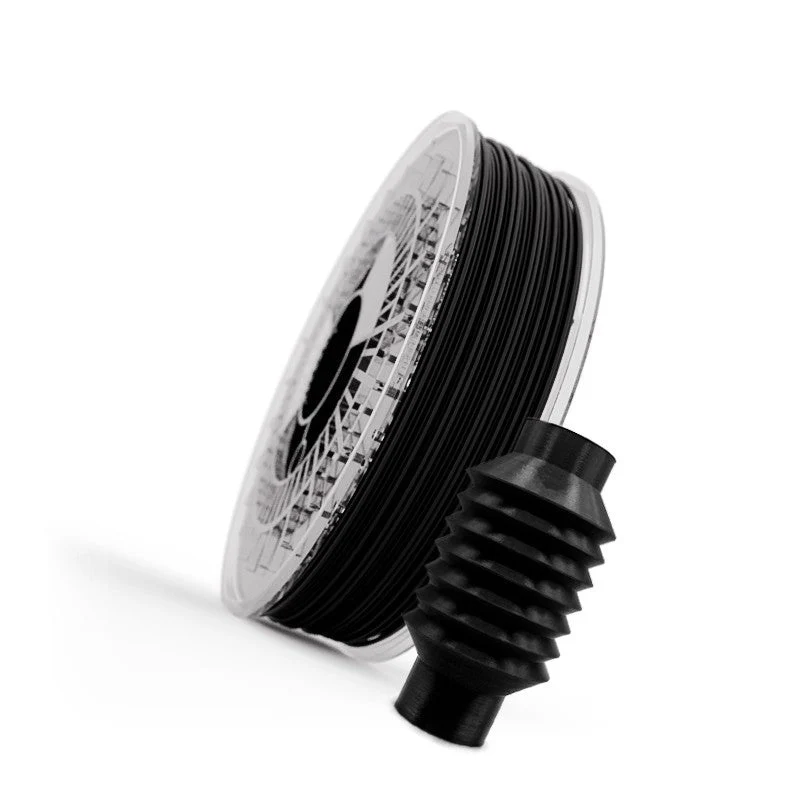
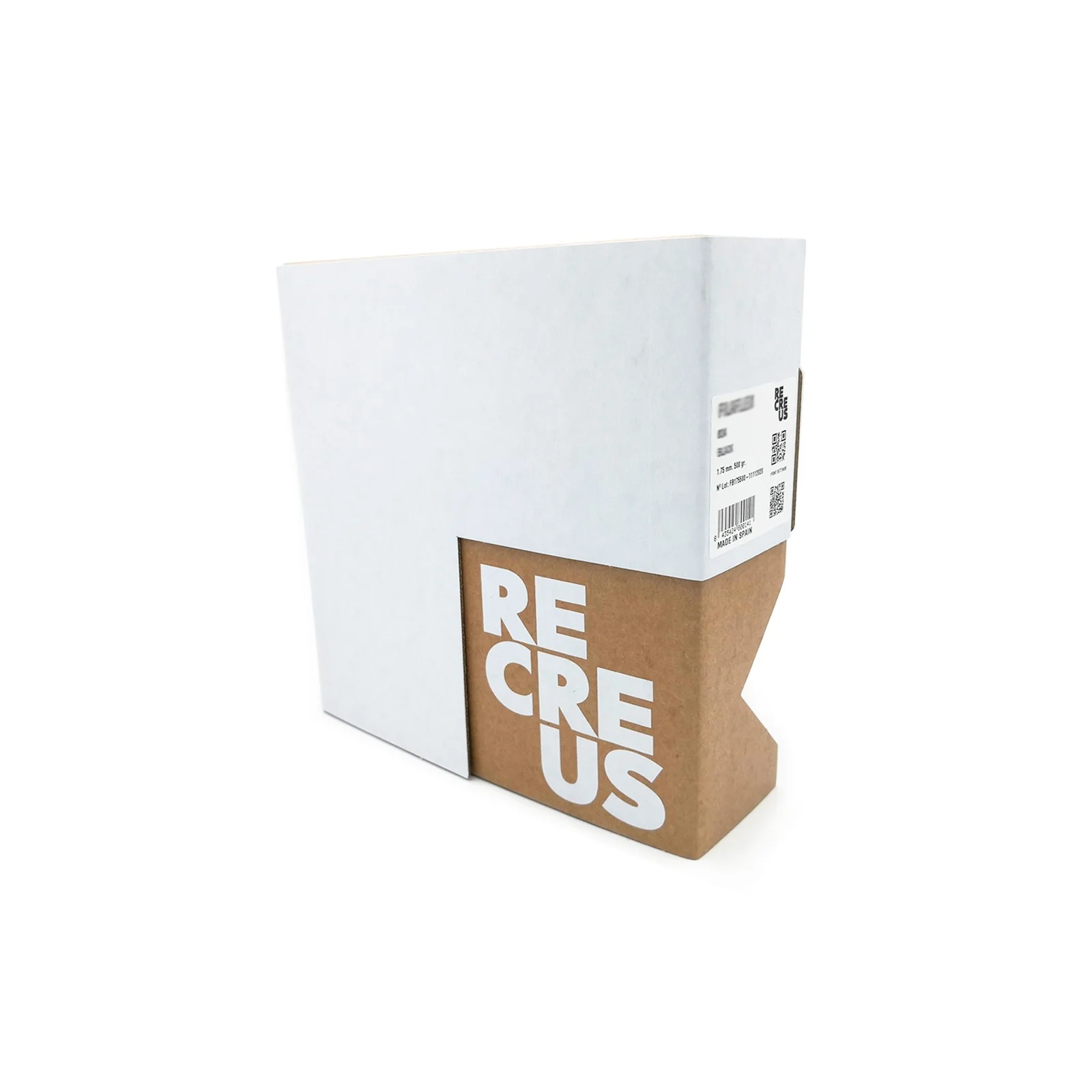
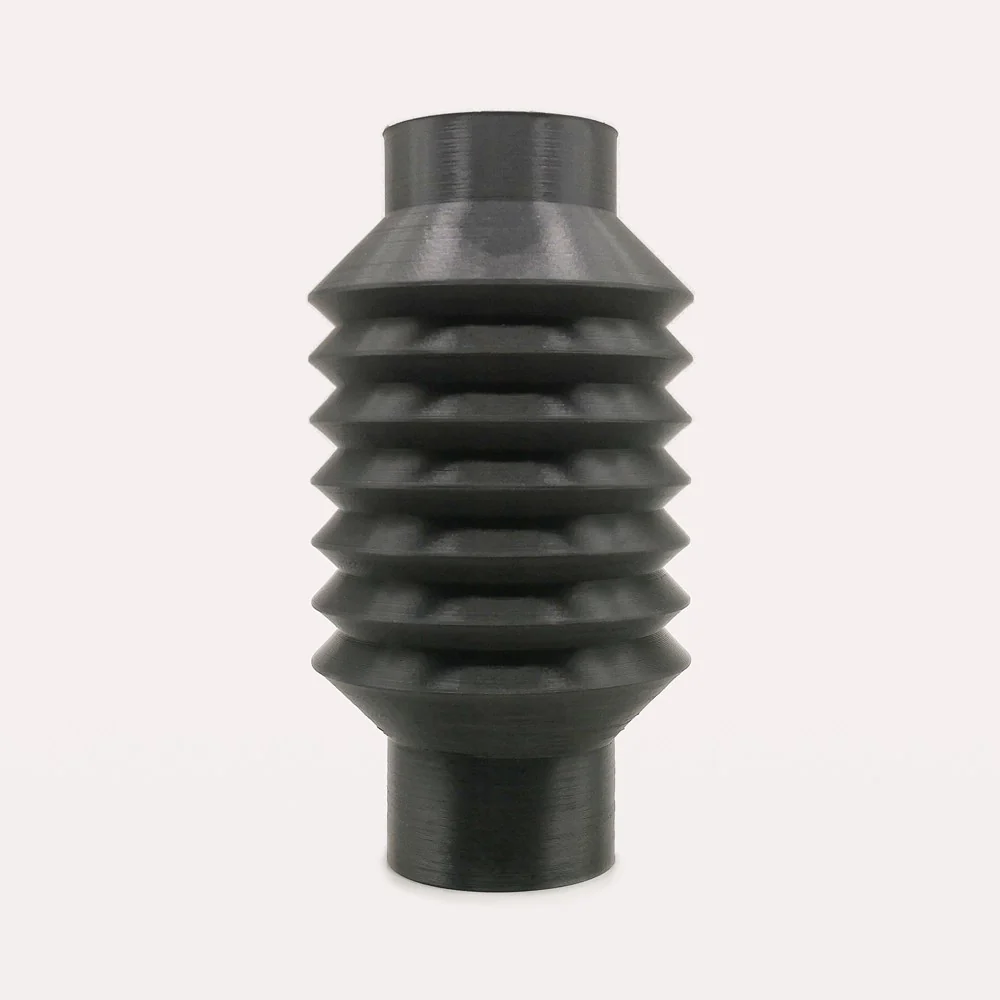
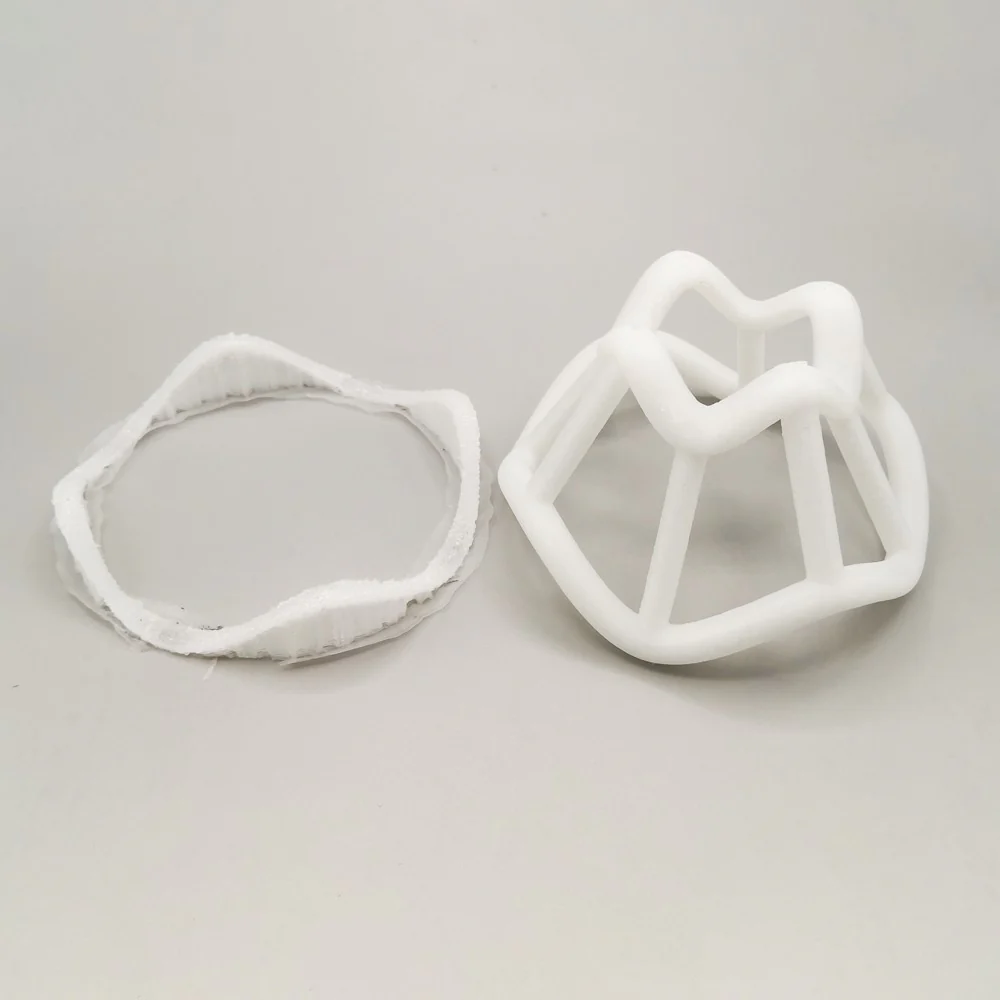









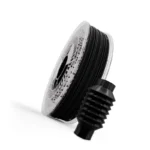

There are no reviews yet.